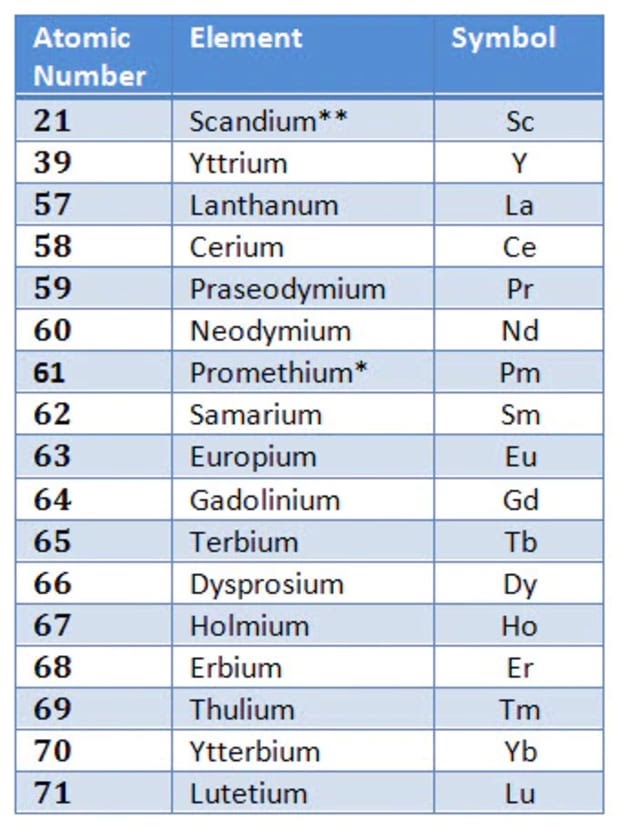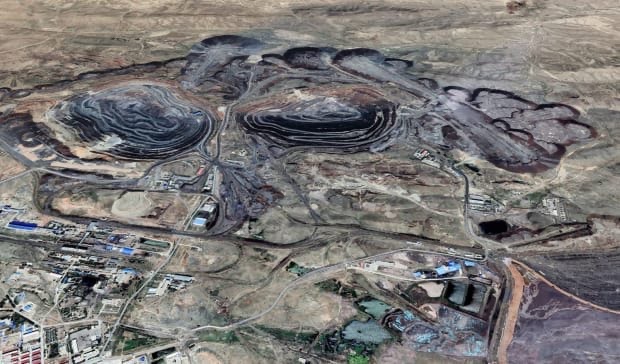

美国:80%的稀土依赖中国:Warrior Maven
2022 年 1 月 30 日,
美国汉字媒体
多维新闻
美国应该减少对中国稀土的依赖。
我发了一篇介绍美国媒体的文章。
美国网络媒体
战士马文
1 月 19 日,作者:格兰特·安德森
发表了题为“稀土——美国国防和太空的主要元素”的句子。
去年12月,中国发布消息称,“新的大型国有稀土公司将诞生”。
中国减少稀土公司之间的竞争,
获得国际市场定价权,
进一步加强对世界稀土供应的控制。
稀土靠中国:
美国曾经是一个稀土生产国。
现在80%的稀土依赖中国。
31种取决于中国:
美国政府认为开采资源对国家安全至关重要。
美国政府宣布,在 35 种矿产资源中,有 31 种极度依赖中国。
https://www.recordchina.co.jp/b888816-s25-c20-d0193.html
Rare Earths – Key Elements to American Defense and Space
Warrior Maven: Center for Military Modernization
Guest Post: Grant Anderson P.E. is the President & CEO of Paragon Space Development Corporation,
a recognized leader in life support and thermal control in extreme environments.
He holds a B.S. in Mechanical Engineering and an M.S. in Aeronautical & Astronautical Engineering from Stanford University.
In early December of 2021,
news brokeindicating that
China is set to create a new State-owned mega-company focused on the rare earth element (REE) market space– an industry that is already dominated by the Chinese.
This company will be
formed through the consolidation of several other existing rare earth companies in China.Based in Jiangxi,
it will be called China Rare Earth Group.Such a move would reportedly
help China further strengthen its hold on the global REE supply chain by reducing discrepancies between Chinese firms and establishing pricing leverage over global competition.This is a dynamic that should be highly concerning to policy-makers in Washington DC,
particularly in the wake of ongoing supply chain issues across an array of goods and materials
– especially those directly tied to China – and the importance of REE’s to national security.At the same time and for the same reasons, the private sector should also be increasingly concerned about this issue. And as the U.S.
seeks to expand our presence in space, and as we develop new technologies to advance that effort, this news should be of interest to companies in the new space economy as well.
REE’s consist of 17 specific elements and are used for a wide variety of applications
– everything from
batteries,
cell phones,
semiconductors,
computers, and cameras, to petroleum refining and steel production.[1] REEs are also critical to the manufacture of national defense and space technologies as well; REEs are used in
magnets on aircraft,
for missile guidance control systems,
lasers,
satellite communications,
and radar and sonar systems.[2] They are also used in night-vision systems and stealth technology.
[3] And while REEs may not actually be that rare, they are disparately located and difficult to extract for both technical and regulatory (at least in the west) reasons.
Disconcertingly,
the U.S. is now dependent on China for 80% of our REE uses and needs[4] – even though like many other industries, we once led the world’s production of rare earth minerals.
[5] In fact, according to a recent Congressional Research Service (CRS) report, in 2019, “the United States imported 100% of rare earth metals and compounds it consumed, even though it exported some domestically mined rare earth element concentrate for further processing (due in part to a lack of domestic processing facilities).”
[6]Moreover, the U.S. relies on China for a great portion of 31 of 35 REEs that have been declared by the U.S. government to be indispensable to national security
– and – sources indicate that 14 of those specific elements are not found in the U.S.
China’s Monopoly
There is some variance regarding just how much the Chinese dominate the global REE trade
– but regardless of estimation or source, the plain fact is that China is the heavyweight player in this space.
And with this latest news about Chinese industry consolidation,
it would appear that China doesn’t seem interested in relinquishing their control over the REE market.
The fears about China’s monopoly on REEs often focus on continued supply chain access
in case of hostilities, or the potential for China to deliberately restrict rare earth mineral supply to the U.S.,
either as a provocative, retaliatory, or competitive action.
Given the problems of our overdependence on China for other key products that have emerged in the ongoing COVID-19 pandemic,
enduring concerns about Chinese dominance of REEs are not unfounded.
Warrior Maven